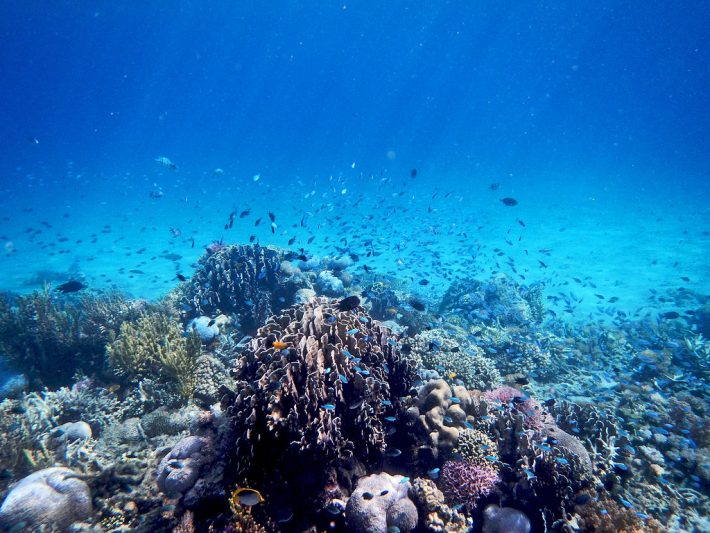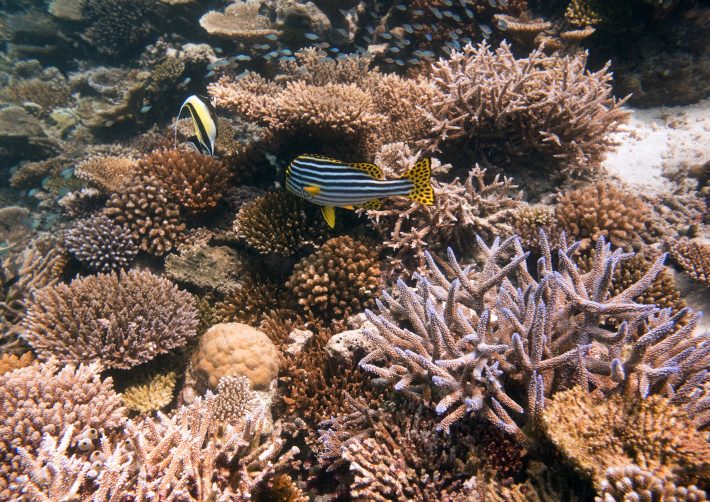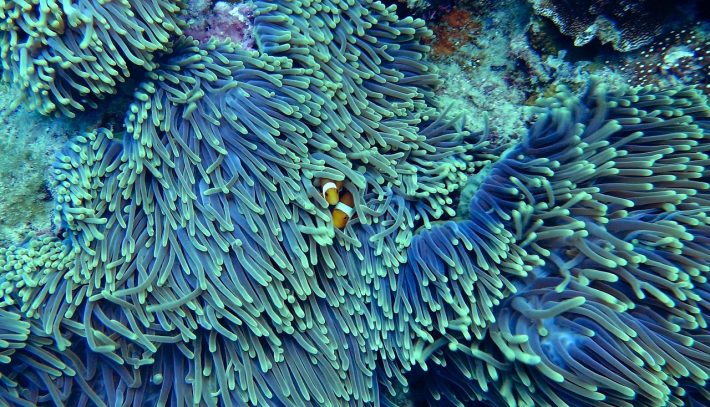Research on coral reefs is biased, according to new study
A new study by UNSW Sydney researchers uncovers biases and evidence gaps within global coral research, pointing the way to how these threatened ecosystems can better studied and protected.

Currently, most papers about coral reefs are published from the US or Australia. However, countries with notably large coral reefs – The Maldives, Papua New Guinea and Indonesia – are heavily underrepresented despite their reefs being on the brink of collapse.
The UNSW Sydney study, published in Ecological Solutions and Evidence, also identified underrepresented key topics within coral research, including coral bio-erosion and the microbiome, both important aspects of painting a clearer picture of our reefs.
PhD candidate and lead author Samantha Burke explains “The idea behind the study was to take a clear stock of information we have gathered, like a birds eye view of coral research. This would then expose the areas requiring further research and provide evidence-backed directions for improving reef research as a whole”.
The researchers looked at 335 papers on coral health, determining a number of key characteristics like the authors’ country, the key themes explored, the methods used and the research integrity of the study. The researchers also used systematic maps to report the state of knowledge within the field – thus revealing research gaps, the most studied themes and a timeline of when precise topics gained popularity.

The most popular key topics determined by the study are climate change and coral resistance, making up 50% and 42% of the research. Bio-erosion – the removal of coral material by other living reef organisms – is the least studied topic.
“By weaving together different techniques, we can get a more holistic view of what knowledge is missing, and some explanations as to why there are certain biases within the field,” says Burke. “Bio-erosion and the microbiome are actually topics that we don’t fully understand yet – so with more research, we could drastically change our understanding of the effects of climate change on coral health”.
Going back to the issue of underrepresentation on certain nationalities within the research, the UNSW team warn that certain coral threats could remain unaddressed due to thus bias. Academic colonialism might explain why there is so much research on coral bleaching. As it mainly occurs in Hawaii and the Caribbean – those areas are easy for American’s to access. But on the other hand, there is very little research of other coral events, like disease outbreaks in the Coral Sea, off the coast of Indonesia.
The data collected by UNSW also indicates the level of use that as research paper has had. For example, if the paper has been used in policymaking or conservation practice. Over 80 percent of the papers were intended for use within coral conservation policy. However, researchers were surprised to find that papers were only cited in policy 0.565 times on average.

“Very little of the research is actually reaching outside of academia. But this can be improved by increasing research accessibility and continuing to gather public interest about coral reefs”, continued Burke.
The researchers hope that their transparency about the current research landscape will encourage higher standards of research integrity. By highlighting countries with large coral ecosystems, like The Maldives, lead author Burke hopes that biases will be addressed with changes in funding and inclusion of local people.
“Local researchers provide a wealth of knowledge and are intimately familiar with a community’s relationship to coral reefs. By including these researchers in studies, we also encourage a passion for coral reef’s in the public”, she ends.
Importantly, the methods used in the study are highly reproducible processes that scientists in any area of research can conduct – ultimately providing a better picture of what’s going on in our oceans today.
Read more:
, , , , , , & (2023). Mapping literature reviews on coral health: A review map, critical appraisal and bibliometric analysis. Ecological Solutions and Evidence, 4, e12287. https://doi.org/10.1002/2688-8319.12287
Like what we stand for?
Support our mission and help develop the next generation of ecologists by donating to the British Ecological Society.